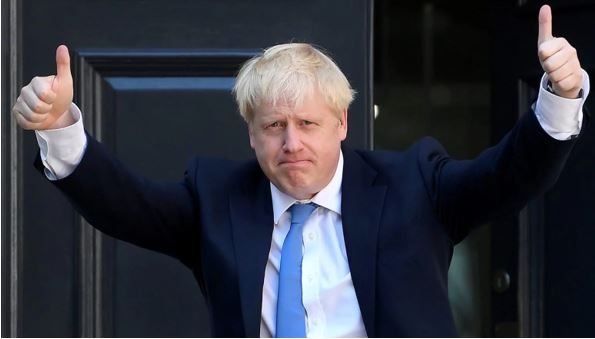From deeper cooperation on counter-terrorism, turbo-boosting trade relations and better understanding on immigration, to new-found political activism by Britain’s 1.5 million strong Indian diaspora, India Inc. Founder and CEO Manoj Ladwa explores the contours of what Boris Johnson’s emphatic victory means for India.
The British public have spoken. Loudly and emphatically. They have voted to get Brexit done, and in doing so, given Prime Minister Boris Johnson the most comprehensive Conservative victory since Margaret Thatcher.
Boris Johnson fought the campaign on the repeated promise of taking Brexit-fatigued Britain out of the European Union on 31 January 2020. This epic result, in the UK’s most significant election in living memory, means Britain will be leaving on that date, and on the terms of the fully emboldened Prime Minister.
I cannot remember a UK election that has also been so eagerly (and perhaps, anxiously) watched in India. This is not surprising given the significant business, strategic, and diaspora interests that India now has in the UK. India is the third-largest investor in the UK, Indians are the largest employers in the manufacturing sector, and there is a huge and vibrant diaspora presence, with over 1.5 million Indian heritage people living and working in the UK.
The result gives Indian business the certainty they have been calling for; if not the details of what the full-fledged UK-EU trade deal will eventually look like, the fact that they will need to start adjusting to the post-Brexit challenges as well as opportunities that the UK’s new course will provide. The UK remains a hugely competitive and innovative economy, and though perhaps less a base for expansion into the EU, it will fight hard to be India Inc’s launching pad for newer markets globally, including across the untapped Commonwealth.
More generally, Boris Johnson’s win spells optimistic news for relations with India. In contrast to the open hostility demonstrated by Jeremy Corbyn on issues from Kashmir to engagement with Prime Minister Modi, Johnson has been forthright in his desire to see much deeper relations with India.
During a campaign visit to the world-famous Swaminarayan Temple in north west London last week, Johnson, in referring to Prime Minister Modi as “Narendra bhai”, talked about standing shoulder to shoulder with India against cross-border terrorism, supporting the Indian leader in his quest to build a New India, and expressing a strong desire to visit India at the earliest possible opportunity should he be elected.
We can, therefore, expect Downing Street starting early preparations for what has all the potential for being the most high-profile visit of a UK Prime Minister to India in recent history. We can also expect both sides to turn up the volume on a trade deal, despite the scepticism in some parts of Whitehall. Specific areas where meaningful progress could be made include defence and security (especially cyber security), data protection protocols, medical tourism, Ayurveda, cooperation in healthcare and education, and enhancing India’s role in the Commonwealth.
We will also see the follow through of Home Secretary Priti Patel’s pledge for a comprehensive overhaul of the UK’s immigration system by bringing in an Australian-style points-based system. The Conservatives have been highlighting that this will especially benefit highly talented young Indians, who are currently overlooked given the preference of European candidates under EU freedom of movement rules. The devil with all such things will be in the detail, but the recognition by Boris Johnson’s team of India’s mobility priorities will certainly be welcome in New Delhi.
Finally, a defining feature of the election has to be the unprecedented activism of the Indian diaspora in standing up to the anti-India propaganda that Jeremy Corbyn presided over within his party, regrettably much akin to the antisemitism that has plagued Labour all through his leadership.
The India Inc. poll, the first ever of its kind, of British Indian voter intentions, revealed a dramatic shift away from Labour by British Indians who have stood loyally with Labour for decades. The relevance of the diaspora, its ability to organise and make electoral impact has been fully on show over the past few weeks.
Boris Johnson’s Conservatives obviously recognised and leveraged it to their fullest advantage. The results ultimately speak.
 Manoj Ladwa is the Founder and CEO of India Inc. publishers of India Global Business magazine.
Manoj Ladwa is the Founder and CEO of India Inc. publishers of India Global Business magazine.

Readers like you, make ESHADOOT work possible. We need your support to deliver quality and positive news about India and Indian diaspora - and to keep it open for everyone. Your support is essential to continue our efforts. Every contribution, however big or small, is so valuable for our future.











